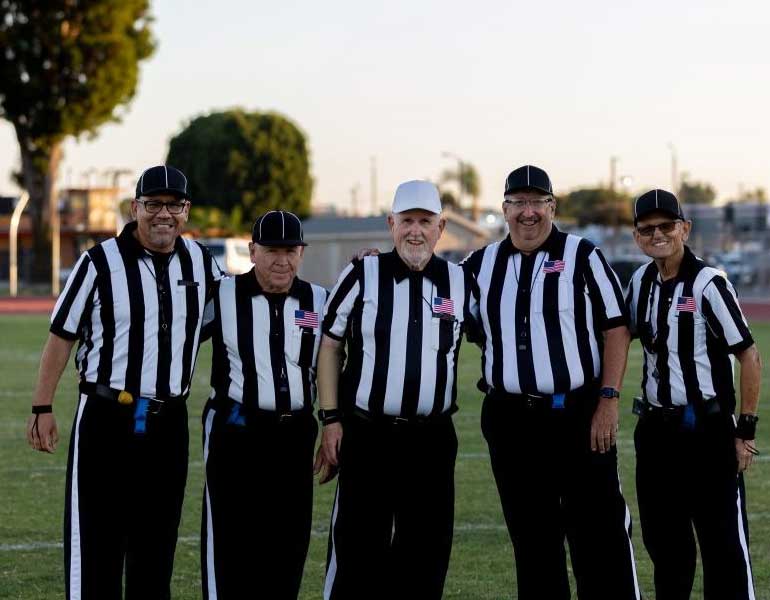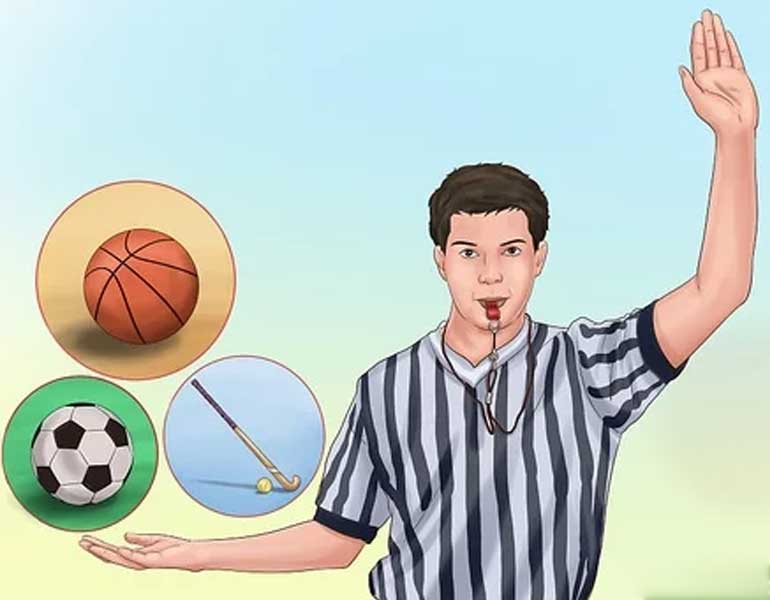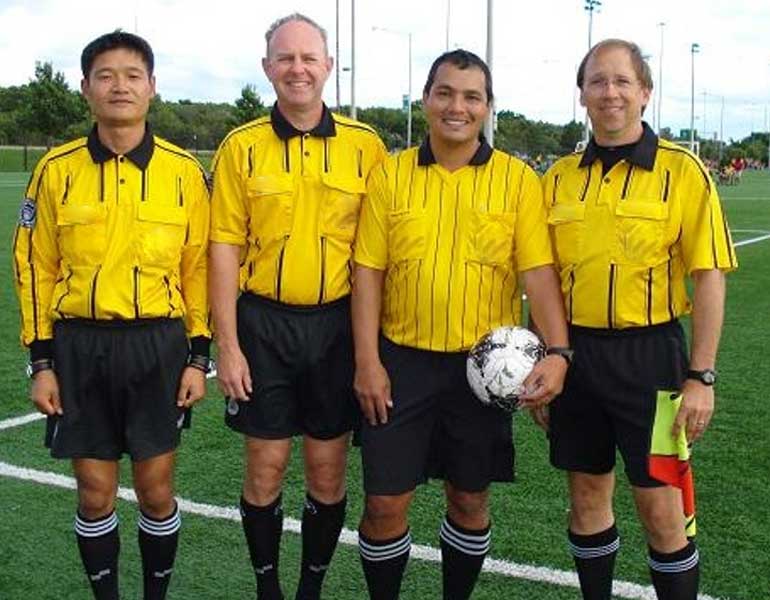
Things To Consider
Physical Demands
As a football official you will be constantly on your feet. Good vision is also essential because you may be watching the action from a distance and often at night. Quick reactions and speed are necessary, so you can get out of players’ way and move with the action to maintain good positioning to make calls. Football games take place predominantly in the fall, so depending upon your location you may need to be prepared for cold and wet conditions frequently. As the players you’re officiating get older and the competitive levels increase, the physical demands also increase.
Mental Demands
Football officials work with more partners than most other sports, so depending on what position you’re working during a game, you will have different responsibilities. Being able to change focus and remember different rules and mechanics for each different position you may work is important. Teamwork is vital in football and your ability to work with and get along with others and take direction from your crew chief is vital to your success.
Training
Football requires officials to work at different positions around the playing field, each responsible for watching a different part of the action. To maximize your success, you’ll have to learn several of these positions well. You can train yourself with rule books and manuals from the Referee Training Center, but you should also join a local officials association where you can expect lectures, demonstrations and exercises that will prepare you for what you’ll face.
Different organizations have different requirements, but most require at least attendance at a meeting to go over any current rule changes. Additional requirements may be a written test with a minimum passing score, payment of fees for the upcoming season and association meeting attendance.
Equipment
- Polished, predominantly black athletic shoes, preferably cleated.
- Black socks.
- Black pants and a black belt.
- Collared striped shirt, both short and long sleeves.
- A fitted black hat with white piping (Referees wear a white hat with no piping but you won’t start at that position.)
- Officiating tools: flags, down indicator, beanbag, information cards, pencil, whistle, lanyard, chain clip, sports watch with timer, signal card, ball pressure tester.
Estimated cost: $275. Once you join an local officiating association, there may be veteran officials who are willing to give or sell you “hand–me–downs” to help you get geared up at a reduced cost.
Game Fees
Game fees vary widely based on the players’ age group, competitive level and the state you officiate in. The fees range from $30-$50 for youth games and $40-$100 for competitive high school games. To maximize your income, you can work a combination of levels several days a week, including weekend tournaments where you can work games all day. An official with a full schedule can make several hundred dollars per week outside their normal jobs.
Here’s the path for starting and continuing your officiating career
Youth Level
Many officials start at the youth level. Contact your local recreation department leaders. Your local association should also help you make contacts to get games. Pop Warner league offers youth games in many cities and you can potentially work multiple games per day on the weekends, enhancing your earning potential.
For information, contact:
After working youth games, you may feel you have the skills and confidence to work higher levels of competition. You may also start at this level if you have a good grasp of the rules and/or experience as a player. For Jr. High games, ask your association leader or contact your school district. For high school games, you’ll need to work with an assigner through your local association. Any work with sanctioned school games requires you to be registered through your state, to prove you’re competent.
The National Federation of State High School Associations (NFHS) is the nation’s governing body for high school athletics. Through them you can get all the information you need from your state to register and start the process to work High School sports.
In most cases, your state association can put you in contact with a local officials’ association. Local associations assign games, many times offer mentoring programs and assist in training.
High school athletic directors, association assigners and other officials can also you get games.
Plan to attend local camps and clinics. They are focused on helping officials learn and improve.
College
College football officiating is highly competitive. Officials with one year of youth experience would most likely not be a candidate even though there isn’t a designated number of years of experience to reach the college ranks. Obtaining a conference schedule and advancement within a conference is based on the league or conference. When first trying to enter a college conference, talk with officials who are currently in the conference. They can give you valuable information such as the conference commissioner and officiating camps to attend. College athletic directors or sports information directors can also be helpful.
You may start your career in the NAIA, work a NCAA Division III conference, advance to a Division II schedule, then on to a smaller Division I conference and culminate with a major Division I schedule. Attending officiating camps is an important tool to improve your officiating. Not only can you learn from experienced veterans, you can be seen by those who assign games at that level, most often conference commissioners or officiating supervisors.
The collegiate national governing bodies:
Professional Football
Professional football officials come exclusively through NCAA Division I conferences because they need experience with athletes of that caliber. Many Division I conference officiating coordinators are NFL or former NFL officials also, so if your desire is to reach the NFL, focusing on rising in the college ranks should be your objective.
National Association of Sports Officials
You may also consider joining NASO, the only nation-wide officials support organization. As a member-driven community; NASO exists to unite, celebrate, develop and protect all officials so that they can reach their goals and take pride in their contributions to the benefits that sports provide society.



